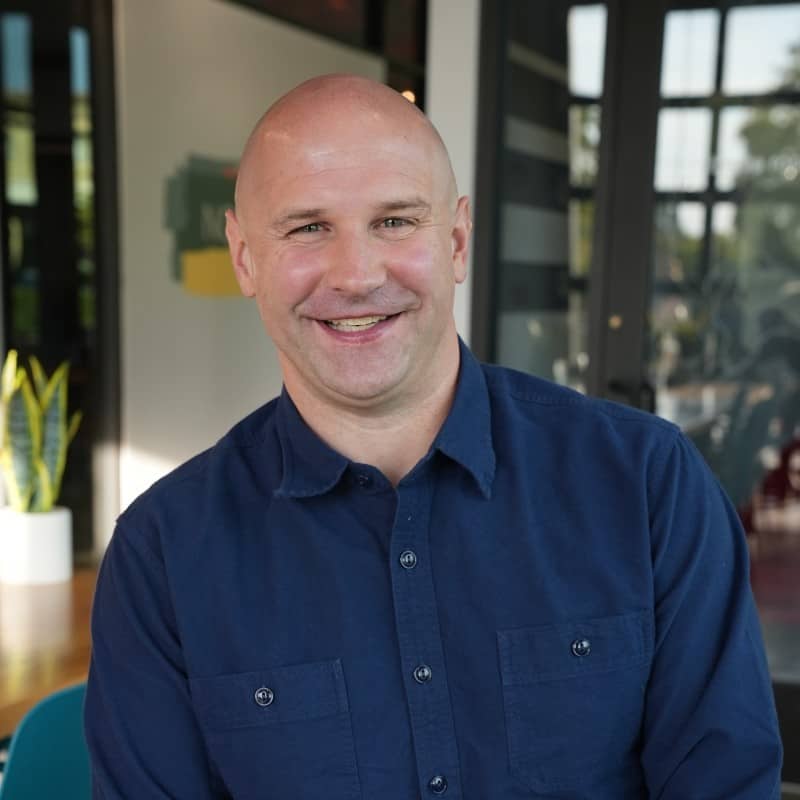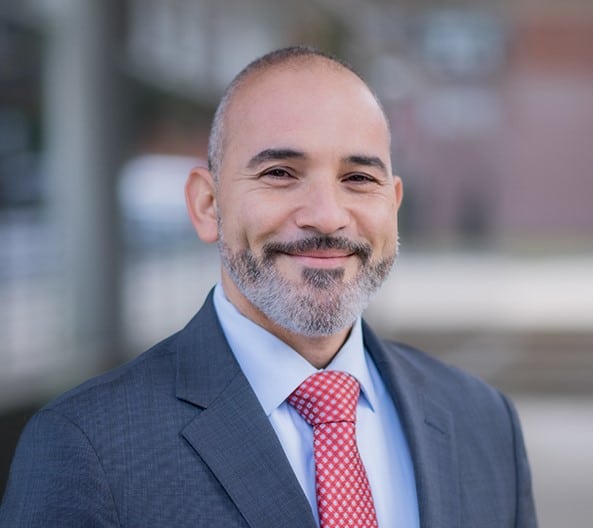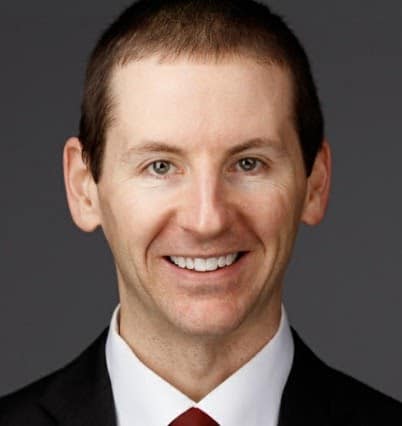To make Wealthtender free for readers, we earn money from advertisers, including financial professionals and firms that pay to be featured. This creates a conflict of interest when we favor their promotion over others. Read our editorial policy and terms of service to learn more. Wealthtender is not a client of these financial services providers.
➡️ Find a Local Advisor | 🎯 Find a Specialist Advisor

“In this world, nothing is certain except death and taxes.” These famous words attributed to Benjamin Franklin over 200 years ago still ring true today. Minimizing the amount of taxes you have to pay when you pass away is just one of the reasons why estate planning is important. No matter the wealth you’ve accumulated in life or the income you earn, knowing what estate planning is and the services available from financial and legal professionals can help you prepare yourself and your family for the inevitable.
In this article, you will learn what estate planning is and why it’s important with expert insights shared by a diverse mix of financial advisors experienced in helping their clients in this complicated area of planning.
What is Estate Planning?
Estate planning is the process of establishing and maintaining a plan that outlines who will receive your assets after you pass away. There are many important documents required, some legal and some that are simply for the benefit of your loved ones. It’s a stressful time when a family member dies—having a solid estate plan can go a long way toward easing burdens.
An estate plan also helps when an individual is incapacitated, too. Moreover, estate planning includes not only your financial assets but also other items and general last wishes.
Due to the financial complexities and legal implications involved, many people choose to work with financial advisors and attorneys knowledgeable in estate planning.
ASK THE EXPERT
Q: How do financial advisors help their clients with estate planning? When should people use professionals vs. DIY?
Why Is Estate Planning Important?
Estate planning is important because it puts in writing how your assets will transfer after your death. Common documents and products include a will, trust, insurance policies, and healthcare-related forms. Estate planning is simple for those with relatively few assets, but it quickly turns complex for high-net-worth individuals and families. Creating an estate plan with an experienced financial planner is thus important to avoid headaches after you pass away. New laws, regulations, and financial products make estate planning a complex area of long-term planning.
According to Marianne Martini Nolte, a Certified Financial Planner and founder of Imagine Financial Services, estate planning is important for everyone, even those who don’t consider themselves to be wealthy. “Estate Planning is far more than Wills and Trusts and wealth should not be a factor when considering estate documents,” says Nolte.
Nolte continues, “The Power of Attorney (POA) for Healthcare and a General Power of Attorney are vital documents of an estate plan. A Will only takes effect at death. A Trust can be in effect both in life and after death. However, POAs are designed to support the grantor during their lifetime. POAs for healthcare and finance become active if the grantor is incapacitated and unable not speak for themself.”

Maggie Klokkenga, CFP®, CPA
Owner, Make A Money Mindshift, LLC
Wealthtender Profile
My older sister was diagnosed with inflammatory breast cancer around Mother’s Day 2017; she died at age 45 in April 2019. She was divorced and a single mom to her only child, who was 10 at the time. I am the “financial” sibling in our family, so she asked me to be her executor. I agreed and also asked that she get her estate planning documents completed as soon as possible. While she had them completed a few months after she was diagnosed, I did not know that a trust was being created upon her death in her will. Once I had found this out, there really wasn’t time to get the documents updated as her health was deteriorating quickly.
Trusts that are created upon one’s death are testamentary, and they typically go through probate, a court-administered process. Probate is also public, and that is the point that I try to make with my clients when talking about having estate documents prepared. While no one wants to think about their death, the intrusion of privacy is unrelenting when your loved one’s assets are going through probate. Imagine having your cell phone (which was a private number at the time) called multiple times throughout each day, where strangers are asking about your loved one’s property. This is a time for grieving, not for your loved one’s life to be on public display.
Get your estate planning documents prepared when you’re healthy, so you have the time to consider all factors in your financial life and what you want for your loved ones. Easier said than done, but you don’t want to find yourself having to make major life decisions when you’re feeling really poorly and just want to concentrate on getting better.
Assets Considered Part of an Estate
You might wonder what is included under the term “estate.” Just about everything you own. Writing down a list of all your assets is a good first step toward crafting a basic estate plan. Note everything, including retirement and investment accounts, properties, cars, jewelry, collectibles, cash, and insurance policies. The list goes on! Knowing what you own along with the total value of your assets helps a financial planner strategize the optimal estate plan for you.
What’s ideal about financial accounts, though, is that you can simply name a beneficiary to whom a specific account will go upon your passing. That makes executing an estate plan easy. Other non-financial assets pass through to your heirs based on how your will or living trust is constructed.
ASK THE EXPERT
Q: Why is Estate Planning important, even for those who don’t consider themselves to be wealthy?
Working with Financial Advisors and Estate Planning Attorneys
The next step is to sit down with a fiduciary advisor well-versed in estate planning. The advisor must understand both the laws and regulations as well as your desires. You want to ensure that your wishes are carried out efficiently while minimizing tax liability and following all state and federal rules. A financial advisor who deals with estate plans each day helps individuals and families spot potential landmines in the process. Going about estate planning alone might work for some people, but those with significant assets should seek the counsel of an advisor.
Another option is teaming up with a lawyer who specializes in estate planning. Attorneys help create complex legal documents and contracts for those with large estates. Chances are most people don’t need to go that far, but wealthy families and business owners should consider the guidance of a respected lawyer or estate planning attorney.

Justin M. Follmer, MBA, CFP®, AIF®
Founder of Coastal Wealth Advisors
Wealthtender Profile
Many RLTs can establish testamentary, charitable, and other irrevocable trusts for heirs to control asset distribution after death. Industry professionals lightheartedly term this “controlling what happens to assets from the grave.” This can help provide for adult children while also controlling the amount of principal the beneficiary has access to in order to prevent spendthrifts and potential creditors from gain access to one’s life-long, hard-earned assets.
Many people want to leave a legacy for several generations and using RLTs and other types of trusts can help accomplish this goal. The world of estate planning can be very complex and confusing, but working with competent financial and estate planners who are well versed in these areas can make the process simple to understand and even implement both during life and after.
What do Financial Advisors Say About Working with Estate Planning Attorneys?
“I love to get involved with the estate planning attorneys I work with,” says Kevin Lao, Founder of Imagine Financial Security. “It puts the clients at ease knowing they have someone who knows their situation in and out and can speak the attorney’s language. Additionally, I know where the assets are and the types of assets, so the client does not have to duplicate efforts in preparing those docs for their attorney.”
Doug Oosterhart, Founder of LifePoint Planning, adds, “One huge value add that an advisor can help clients with is an in-case-of-death (ICOD) folder. That folder contains all relevant information about the client, what institutions they have money at, life insurance policy numbers, social media usernames and passwords, etc. It’s something outside of traditional estate planning that adds a lot of real value to the client.”
ASK THE EXPERT
Q: How do financial advisors work with estate planning attorneys?

Financial advisors are not a replacement to estate planning attorneys. They’re a complement to estate planning attorneys. We find that clients who’ve spoken to an advisor prior to an attorney are more organized and informed going into their estate plan meetings. This often results in a lower cost in having estate plans prepared because most attorneys charge clients an hourly rate. Attorneys often bill in six minute increments. The best way to get estate plans done for the lowest price is to be well informed and well prepared going into the meeting with the estate planning attorney so the attorney’s time is spent preparing the documents and addressing any specific complexities you have.
Most estate planning attorneys do not follow up with you on a regular basis after the documents are created. By working with an advisor, your advisor can review your estate planning documents and ensure your estate plans continue to reflect your desires. If they don’t, this review with your financial advisor can highlight when you may need to return to your estate planning attorney to have your documents updated.
Tim Woodward, CFP®, CKA®, CDAA, MBA | Blend Wealth
Should you approach a financial advisor or an estate planning attorney first?
Tom McAuliffe, Relationship Manager with Heritage Family Offices says, “In my experience, a good financial advisor with experience in estate planning helps set the stage for the work an estate planning attorney will do, especially if the family hasn’t been down this road before. The financial advisor helps clarify goals and intentions and can tell you if these are viable based on a financial analysis and plan. Then the estate planning attorney can do their work drafting final plans including documents and the appropriate trusts.”
Emily Rassam, Senior Financial Planner with Archer Investment Management agrees. “Start with a financial planner who can help you understand what you hope to achieve with your money over your lifetime and how to prioritize your short-term and long-term financial goals. A planner will map out your assets and tune up your balance sheet, giving you an organized view of your current net worth and future trajectory. This step is incredibly helpful when determining what your future estate might look like.”
Emily also added, “In the financial planning process, your advisor will help determine the appropriate life insurance coverage and savings strategies to achieve goals during your lifetime and fund legacy goals. An estate planning attorney will then view the scenario and determine if trusts are appropriate to execute your wishes or optimize your taxes and the language needed in your documents to match your intentions. Consider asking your planner to attend the meeting with your estate planning attorney if you’d like guidance on communicating your wishes and syncing it to the planning work developed.”
Common Estate Planning Documents
The best way to develop an estate plan is to first understand what documents you need to complete. Simply putting in writing what you want to happen if you become incapacitated or if you pass away can take care of much of the estate planning process. A financial advisor helps guide individuals in the process, too.
- Last Will and Testament: This is the most well-known document in estate planning. Most people know they should have a will, but the majority of Americans do not have one. According to a 2020 Gallup survey, just 45% of U.S. adults reported they had a will. A will is the foundation of an estate plan. The document outlines to whom your assets will go upon your death. Assets mentioned in a will still must go through the probate process, however. A will can be inexpensive and simple to make online, but they are often costly and elaborate for high-net-worth families. Moreover, a will is not a ‘set it and forget it’ estate planning document – it must be maintained just as a financial plan is updated as life events happen. Naming an executor of an estate is a critical component of your last will and testament, too. Finally, individuals should be aware that the will is made public through the probate process, so be thoughtful about what is included in the document.
- Power of Attorney Form (POA): There are two types of POAs: Financial and Durable. A Financial POA allows someone to control your financial accounts when you are unable to do so. A Durable POA goes into effect when someone becomes disabled in some way and cannot act personally.
- Advanced Healthcare Directive (AHCD): An AHCD, or Medical POA, outlines what healthcare-related actions should be taken if you are unable to make decisions.
- HIPAA Authorization: This document can save a lot of time and anxiety since it gives consent to share your medical records with third parties.
- Trust documents: Trusts allow you (the Grantor) to give someone else (a Trustee) control over how assets are invested and held for the benefit of a third party (a Beneficiary). When constructed properly, assets in a trust avoid both probate and estate tax liability.
- Beneficiary forms: You might be overwhelmed by all that goes into making and maintaining an estate plan. One thing you can do today that is quick and easy is complete beneficiary designation forms on all your financial accounts. IRAs, 401(k)s, and brokerage accounts often offer short forms to accomplish this estate-planning task. Financial accounts with a named beneficiary efficiently transfer upon your passing. Checking accounts have a “transfer on death” option as well.
- Guardianship: More important than money is what happens with your children and other dependents. No estate plan is complete without a directive on who will care for your loved ones when you pass away. Guardianship is commonly outlined in a will.
Estate Taxes
Avoiding estate tax is among the primary goals of crafting and strategizing an estate plan. After all, for individuals with a net worth above the federal estate tax exemption, the so-called “death tax” can run into the millions of dollars. Ultimately, you want to ensure your heirs receive as much of your assets as possible. A savvy financial advisor helps individuals and couples create an optimal estate plan—that includes taking tax minimization actions years in advance of retirement.
The top federal estate tax rate is 40% for 2022. The estate tax exemption amount, also called the exclusion, is $12.06 million per individual and $24.16 million per couple. That means if the cumulative value of your assets exceeds those amounts, you could face substantial estate tax liability. The good news is that there are strategies you can act enact to reduce what you might owe. In general, the higher your net worth, the more value a financial advisor knowledgeable in estate planning brings.
Another key amount is the annual gift tax exclusion, which is $16,000 per donor, per donee ($32,000 per couple). A popular strategy is to gift assets to children and grandchildren during, say, retirement years to bring down the value of an estate. An upshot is you get to see your loved ones enjoy the money while you are alive. Roth conversions can effectively bring down the taxable value of an estate, too.
EXPERT VOICES

The role of a financial advisor in estate planning is to help the client articulate how they envision their wealth transferring upon their death(s). Once their goals are outlined, the advisor should give guidance and advice that meets the client’s objective in the most efficient way possible.
It is a process of beginning with the end in mind and working backwards. A qualified attorney can then draft the documents necessary to execute the estate plan and offer any additional advice necessary. Clients should have a good understanding of what they wish to accomplish prior to engaging an attorney.
Ayad Amary, MBA, CFP®, AIF | Wealthcare of The Lehigh Valley
Get Started Today
Everyone needs an estate plan, but maybe the value of your assets is significantly below the federal estate tax exemption. If so, you can simply visit any number of online sites to draft and formalize your estate plan document. Many employers offer estate planning services in their benefits packages—check with your Human Resources department at work to see if that’s the case for you.
But here’s the thing: While your net worth might be well under the exclusion amount today, decades from now that might not be the case. Consider that compounding investment returns, business growth, and even tweaks to the federal tax code might change your situation. Getting started today with certain estate minimization techniques can prepare you for an easier tomorrow.
Once you decide to take control of your financial future, begin your estate planning journey by taking inventory of all items you own. Then consider who you want to take care of your children if you pass prematurely. Next, fill out beneficiary forms and create the estate planning documents mentioned earlier—that likely means you will need to sit down with a financial planner. Also, reach out to someone you trust who can serve as executor of your estate. Be sure to keep your estate planning documents in a safe place and store them electronically for easy access. Finally, no financial plan is complete without active monitoring and review—when life events happen, be sure to make time to update your plan.
Conclusion
Taking time today to craft an estate plan helps ease your loved ones’ burdens after you pass away. A solid estate plan outlines who will receive what after you die and this important piece of financial planning includes directives on what actions to take if you become unable to act on your own. Working with an experienced financial advisor on an estate plan is a valuable and prudent move in the financial planning process.

About the Author
Mike Zaccardi, CFA®
Mike is a freelance writer for financial advisors and investment firms. He’s a CFA® charterholder and Chartered Market Technician®, and has passed the coursework for the Certified Financial Planner program.
Learn More About MikeTo make Wealthtender free for readers, we earn money from advertisers, including financial professionals and firms that pay to be featured. This creates a conflict of interest when we favor their promotion over others. Read our editorial policy and terms of service to learn more. Wealthtender is not a client of these financial services providers.
➡️ Find a Local Advisor | 🎯 Find a Specialist Advisor

